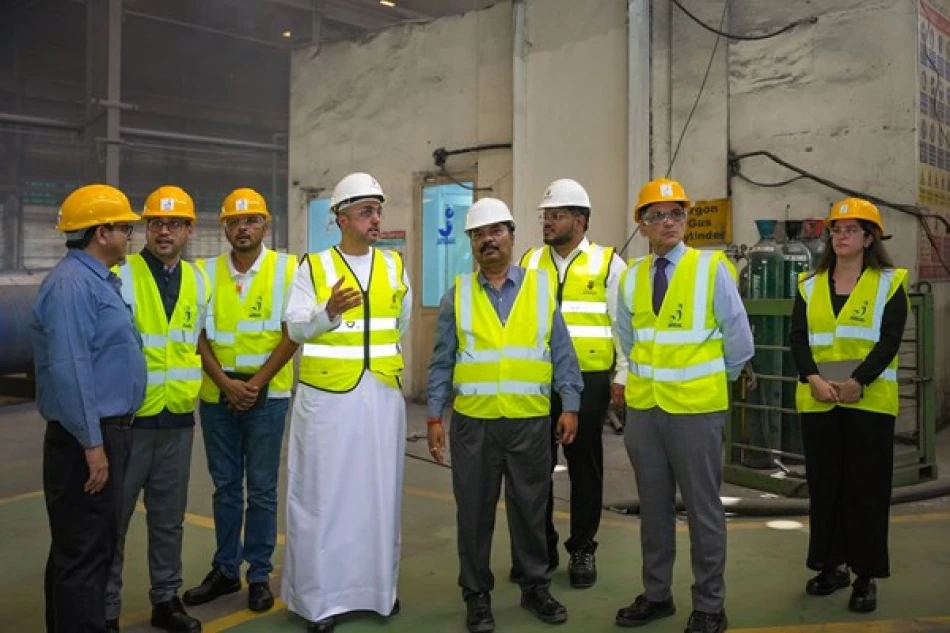
Abu Dhabi's Energy Efficiency Accelerators Power Industrial Growth
Abu Dhabi Launches Ambitious Industrial Energy Efficiency Drive to Cut Costs and Carbon Footprints
Abu Dhabi has unveiled a comprehensive energy efficiency accelerator program targeting 100 industrial facilities across the emirate, offering free technical assessments to help manufacturers slash operational costs while advancing the UAE's net-zero ambitions by 2050. The initiative represents a strategic shift toward making industrial sustainability economically attractive rather than regulatory burden.
Strategic Framework Behind the Initiative
The Industrial Energy Efficiency Accelerators program operates under Abu Dhabi's Energy and Water Efficiency Strategy 2030, positioning the emirate as a regional leader in industrial decarbonization. Unlike traditional regulatory approaches, this initiative provides specialized technical evaluations at no cost to participating facilities, removing financial barriers that often prevent smaller manufacturers from pursuing efficiency upgrades.
Ahmad Al Falasi, Executive Director of Energy Efficiency at Abu Dhabi Department of Energy, emphasized that the program transcends basic energy auditing. "This is a strategic enablement tool for sustainability transformation," Al Falasi explained, highlighting how the initiative helps facilities identify operational opportunities that simultaneously reduce production costs and environmental impact.
Targeting High-Impact Industrial Sectors
Focus on Energy-Intensive Industries
The program strategically targets six major industrial sectors that collectively represent the largest share of electricity and water consumption in Abu Dhabi's non-oil economy: construction materials, food and beverages, metals, paper products, rubber and plastics, and chemicals and pharmaceuticals.
The metals sector alone accounts for over 51% of electricity consumption and 26% of water usage annually within non-oil industries, making it a prime candidate for efficiency improvements. This data-driven approach ensures maximum impact from the program's interventions.
Multi-Tiered Assessment Process
Participating facilities undergo a comprehensive three-level evaluation process. Initial field visits (Level 1) identify basic inefficiencies, followed by detailed assessments (Levels 2 and 3) that pinpoint specific waste sources and improvement opportunities. This graduated approach allows the program to scale efficiently while providing tailored solutions for each facility's unique operational profile.
Market and Economic Implications
The timing of this initiative aligns with global industrial trends toward operational efficiency and carbon reduction. As international markets increasingly demand sustainable supply chains, Abu Dhabi's manufacturers gain competitive advantages through reduced energy costs and enhanced environmental credentials.
For investors and industrial developers, the program signals Abu Dhabi's commitment to maintaining its manufacturing competitiveness while transitioning to a low-carbon economy. This dual focus on economic performance and environmental responsibility mirrors successful industrial transformation strategies in Singapore and parts of Europe.
Implementation Progress and Timeline
The Department of Energy has completed assessments of 12 industrial facilities and is currently working with 14 additional sites. The program aims to evaluate approximately 50 facilities by the end of 2025, with remaining technical assessments scheduled for completion in 2026.
This phased rollout allows for continuous refinement of assessment methodologies and ensures that lessons learned from early participants benefit later entrants. The program's emphasis on data confidentiality addresses a key concern for manufacturers hesitant to share operational details.
Regional Leadership in Industrial Sustainability
Abu Dhabi's approach contrasts with purely regulatory frameworks adopted elsewhere in the region. By providing free technical expertise and focusing on economic benefits, the emirate positions itself as a manufacturing hub where sustainability and profitability align. This strategy could influence similar programs across the Gulf Cooperation Council countries as they pursue their own net-zero commitments.
The initiative's success will likely determine whether other regional industrial centers adopt similar collaborative approaches to decarbonization, making Abu Dhabi a critical test case for market-driven sustainability transformation in the Middle East's manufacturing sector.
Most Viewed News

 Layla Al Mansoori
Layla Al Mansoori






